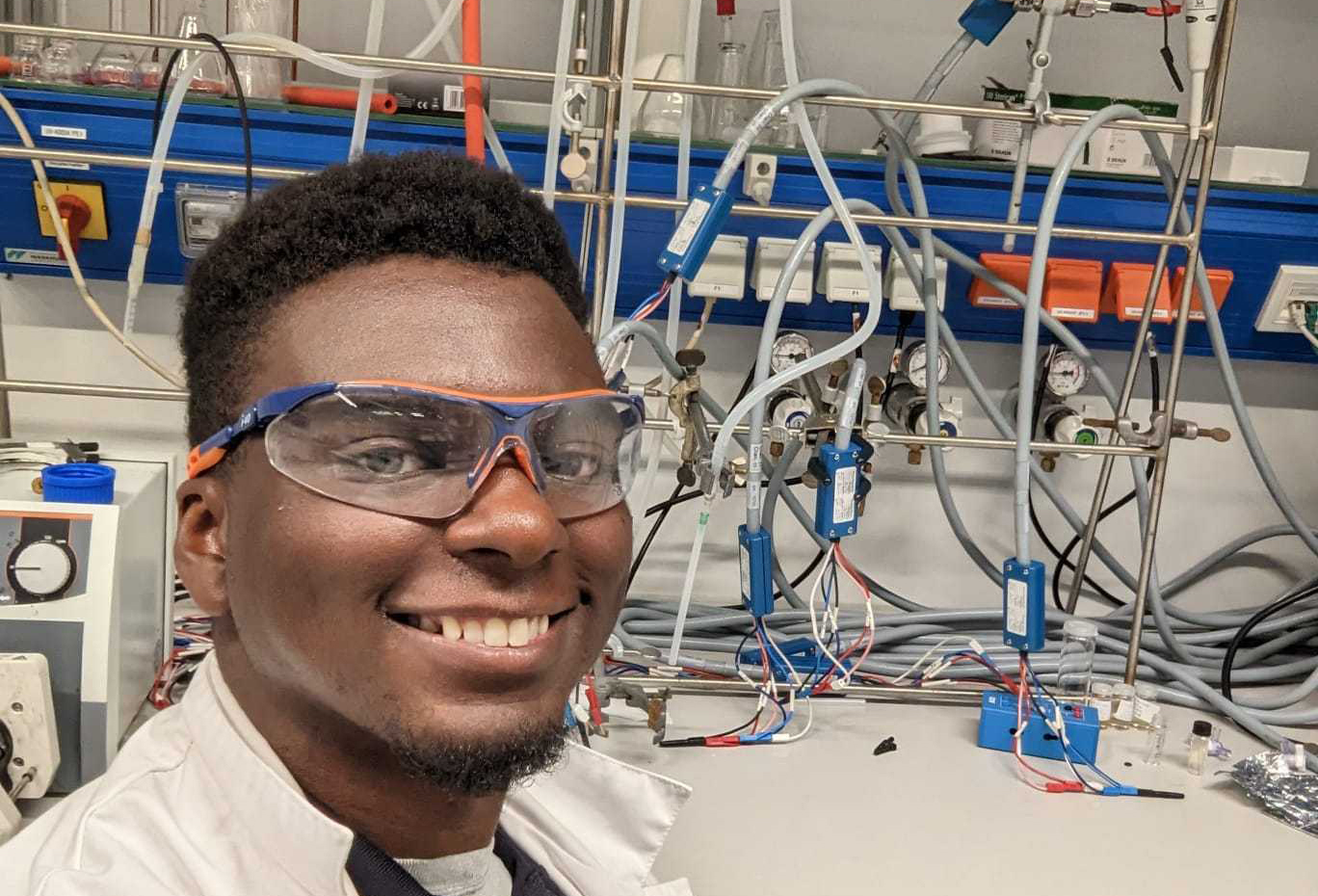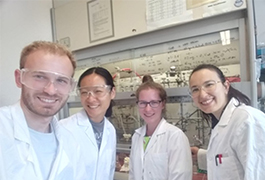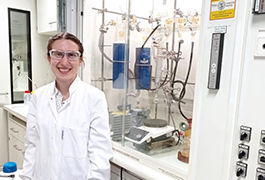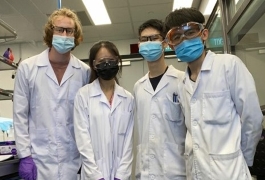Fighting Self-Doubt When Imposter Syndrome Kicks In
By Michelle Boucher
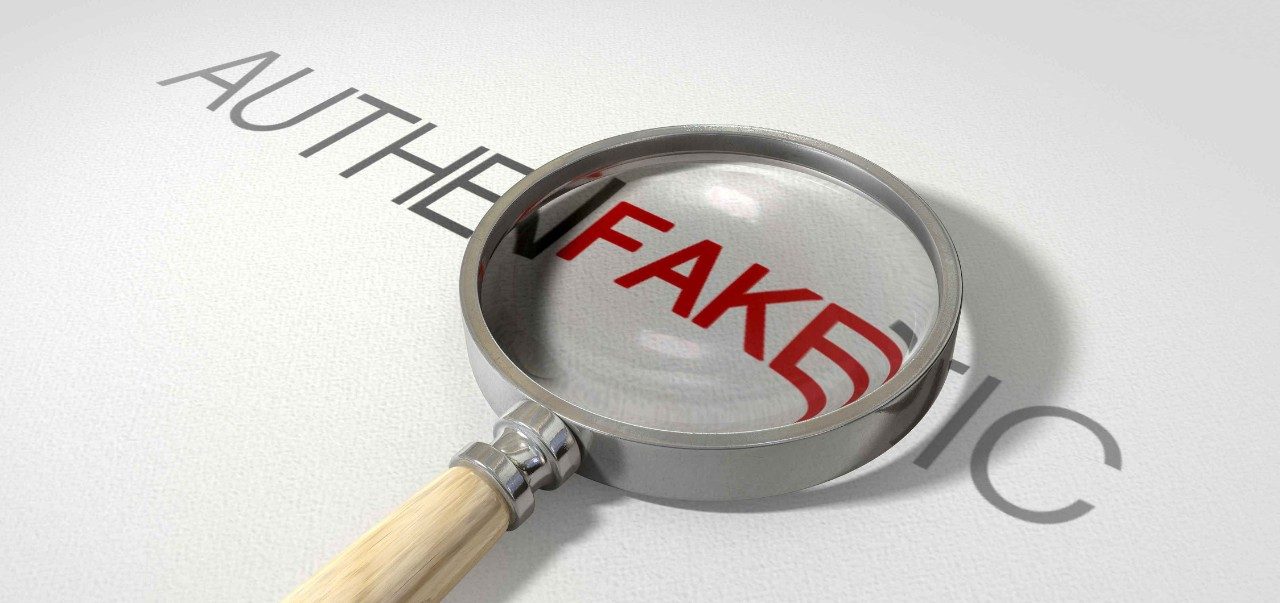
Have you ever said these words to yourself:
“General Chemistry is so much harder than high school chemistry. Am I even cut out for this?”
“I’ll never feel confident with all these organic lab techniques.”
They want me to be a tutor. I got good grades in that class, but I feel like I learned nothing at all!”
"How long before they decide all my grades were just luck?”
Believe it or not, these are pretty normal thoughts. The chemical sciences are challenging, and it is natural to wonder if you are on the right track. If you can relate to such feelings of insecurity, you might be dealing with a phenomenon called Imposter Syndrome.
Though it is not an actual medical condition, Imposter Syndrome generally refers to the false belief that your success came by luck or fraud, rather than skill. Chemistry students, like many others, are susceptible to imposter syndrome. Students find high school chemistry easy to master, but college-level chemistry is broader, richer, and much more challenging. Suddenly, what was once easy now seems very difficult!
Organic chemistry, physical chemistry, and inorganic chemistry are all courses unlike anything you may have experienced in high school. You quickly realize just how much you don’t yet know. And when you factor in the challenge of having to do independent lab work, it is easy to see why chemistry can challenge anyone’s self-esteem and lead to serious self-doubt.
Don’t let self-doubt define who you are and what you do. Here are seven ways to help combat your doubts, believe in yourself, and carry on with your studies.
Bonus
Focusing on what you can control (like how hard you study), rather than what you can’t control (such as other people’s opinions of you), gives you a sense of direction and purpose, which is great for combating imposter syndrome.
1. Study hard, and with pride
There is often the misconception that people who are good at something don’t have to work hard at it. The idea that success “comes naturally” is great for the movies, but it rarely happens in real life. The reality is accomplished people do work hard, think hard, and study hard because they accept the intellectual challenge of working interesting problems that require effort. Chemistry is a deeply complex field that is exciting to students of the discipline because of its depth. You will inevitably find a problem or topic that you need to work hard at understanding … and that is a great thing!
2. Find a peer support network
When you don’t know the people in your class, you may imagine that everyone is performing better than you are. Make friends with your classmates, and you will soon see that they are facing the same difficulties with learning the material. When you surround yourself with friends who share in your challenges, you can appreciate what you have already learned instead of drawing comparisons that make you think you need to catch up to your peers. You might even be amazed to discover that you understand a topic that your classmates have not yet grasped.
3. Talk with a mentor — and believe what they tell you
It may seem terrifying to ask a professor for help, but part of their job is to help you. Professors are accustomed to getting questions, and they understand what it feels like to worry about one’s place in the field.
4. Be a mentor
Whether it’s your second semester or your fourth year, you know so much more now than you did three years ago (or even a mere three months ago). Share that knowledge. Work in the department as a laboratory assistant or peer-tutor. Spend a little extra time talking with the freshmen in your ACS student chapter, or volunteer to be a “big sibling” to incoming freshman chapter members. Not only will you be helping others, you will also reinforce what you’ve learned since you started, and appreciate how far you’ve come.
5. Get involved in outreach activities
Participate in outreach to local grade schools, high schools, and community organizations. Nothing builds self-confidence like helping others learn something new. Those eight-year-olds delightedly making slime with you aren’t thinking, “This person isn’t good enough to be a chemistry major”; instead, they’re thinking, “They taught me to make awesome goop!” Younger students and people in your community see you as the professional that you are becoming!
6. Trust the process
Colleges do not accept students out of pity. REUs and scholarships are not awarded randomly, and peer-tutor or laboratory assistant recommendations are not made without serious thought. Even open-access programs are set up to help talented people thrive, not to let lackluster students shuffle along through their coursework. If you earn a spot in a program or if you are invited to serve your department, trust that you are meant to be there. Sometimes it’s hard to see in yourself what others do, but know that others may be less biased (and more gentle) in their assessment of your abilities than you are. Trust them and their judgment!
7. Appreciate your value as a novice
It’s normal to feel like you’re surrounded by experts … because you are! Professors, teacher assistants, and upperclassmen all know more than you. Their acquired knowledge doesn’t make you an imposter; it makes you a novice. Remember that the novice often brings a new perspective and a new way of doing things. As Garfield the Cat once noted, “It’s amazing what one can accomplish when one doesn’t know what one can’t do.”
Studying chemistry may be challenging, but you already have a lot of what it takes to be successful. You are interested in your field (you’re reading this article, after all), and you care enough to go the extra mile. Though mastering chemistry might be tough, your dedication to learning will make you a success!


